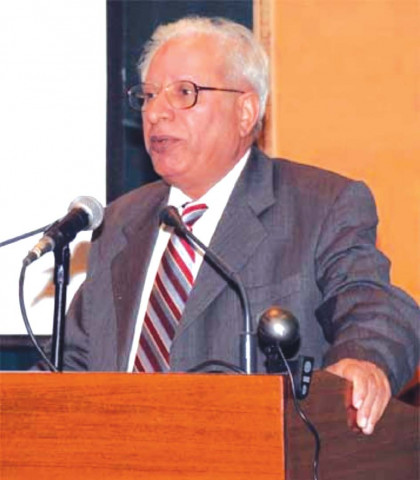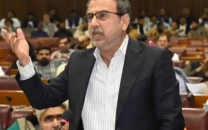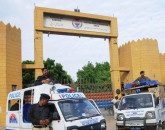Rector IIUI talks: Education ‘responsibility of state, not parents’
Renowned educationist Prof. Fateh Muhammad Malik speaks about Islamic university and state of education.

Renowned educationist and International Islamic University Islamabad (IIUI) Rector Professor Fateh Muhammad Malik said Saturday that government should provide free education to all segments of the society. Education is the “responsibility of the state, not parents”, he said.
In an exclusive interview with The Express Tribune, Professor Malik lamented that education has become a lucrative business in the society, where only the rich have access to it.
“Education has become the most expensive product in the market and children of poor people don’t have a level playing field for receiving quality education,” he said.
“The key challenge for me as an educationist is as to how I can abolish the high fees in my university. The university management has decided to freeze fees at this stage but could not abolish them due to some unavoidable circumstances,” said the rector. He said that an Islamic university in an Islamic state should not have a policy of demanding high fees from students to meet its operational expenses. But the donors from Islamic countries have suspended funding for the last seven years, which makes it difficult for IIUI to provide affordable education, he said.
Malik said that to ease the burden for the students, the university has decided not to increase the fees further and would use some of its own resources to generate funds -- it will establish petrol pumps and gas stations on its land along the roadside of its main campus.
Malik stated that it is possible for the state to make education free and compulsory as it was done by former Prime Minister Zulfiqar Ali Bhutto, who nationalised all educational institutions. But a “strong political will” is needed for that, he added.
“Now the teacher is forced to sell education and students have to buy it,” he said. Malik suggested that the government spending on education must be increased, so that more people can have access to free of charge education.
Talking about the future plans of the university, the rector said the university is opening the department of Islamic Art and Calligraphy from this session. The approval for the department has been given by the academic council of the university and classes in the department, Malik said, would start from the coming academic session.
He said that most people from conservative backgrounds want to get their daughters admitted in the university because of the segregated education system; however, lack of hostel facilities is a key hindrance to their plans. “Most of the people prefer taking their daughters back home rather than letting them stay in private hostels,” said Malik. IIUI, therefore, is planning to construct two additional hostels for female students.
The rector added that the administration is also planning to construct housing units within the university for the employees of grade-1 to 16, to facilitate them.
The idea of IIUI was given at the summit of Islamic countries in early 1970s, during the era of Zulfiqar Ali Bhutto for establishing a university that would provide Islamic education by adopting modern methods, Malik said.
The idea was materialised by the military government of Gen. Ziaul Haq in early 80s. Initially, the university had faculties of Islamic Studies, Arabic Language and Sharia and Law; it was initially funded by donors from Arab and Gulf countries and Islamic banks but gradually the funding stopped. The university gradually made progress and established its departments in social and natural sciences, languages, business information technology and engineering.
Published in The Express Tribune, July 17th, 2011.


















COMMENTS
Comments are moderated and generally will be posted if they are on-topic and not abusive.
For more information, please see our Comments FAQ